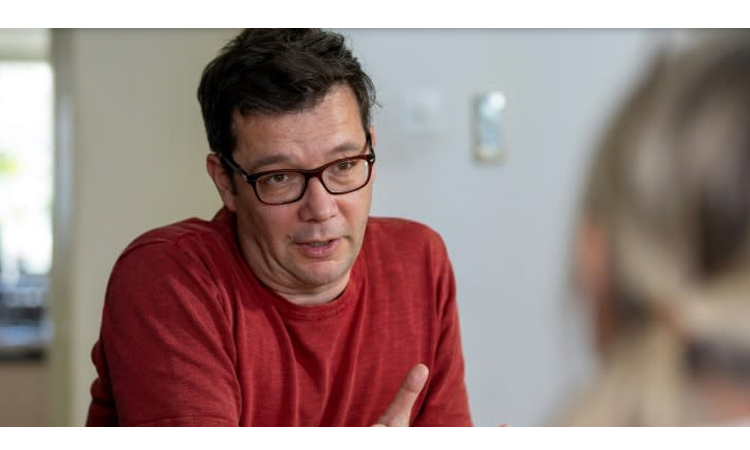News Flash

ZAGREB, April 24, 2025 (BSS/AFP) - From the dark shadows still cast by the wars that accompanied Yugoslavia's collapse to social exclusion, Croatian film director Nebojsa Slijepcevic is not afraid to shy away from weighty subjects.
Slijepcevic became Croatia's first ever Palme d'Or winner -- and achieved global acclaim -- when his "The Man Who Could Not Remain Silent" premiered at the Cannes film festival last year.
The short film, which depicts a war crime in Bosnia, was also shortlisted at this year's Oscars and has won a dozen other awards, including a French Cesar and a European Academy prize.
"It was a surprise indeed... it became one the most successful short movies in history considering the number of awards," Zagreb-born Slijepcevic told AFP.
The film depicts a real-life event from February 27, 1993 when Serb paramilitaries stopped a passenger train in Strpci, a village in eastern Bosnia.
Nineteen Muslim civilians from Serbia and Montenegro were kidnapped and later killed.
Of the around 500 passengers, retired Yugoslav army officer Tomo Buzov, who was travelling to visit his son, was the only one who stood up to paramilitaries.
Buzov, an ethnic Croat, was taken along with the others. His remains, like those of most the victims, were never found.
- 'Resisting violence' -
Slijepcevic said although the film is about an atrocity committed in Bosnia in 1993, the situation is "universal, out of time and space".
"It talks about something that happens very often to us both as individuals and societies... being in a position to witness injustice or violence, as some sort of observers who seemingly can afford to pretend not seeing it, that it doesn't concern us," he said.
The movie pays respect to an unusually brave man, who was motivated by a human desire to defend innocent people armed with only his words, the 52-year-old director said.
Buzov's family lives in the Serbian capital Belgrade and he sought their approval before making the film.
Mild-mannered Slijepcevic, who describes himself as an introvert, said the movie's success was also due to the current global political turmoil.
"It is about resistance to violence. The world is much more violent today than it was when I wrote the script, the violence is increasingly showing that it could change the world forever," he said.
"Global events were in favour of the success of my film. Unfortunately. It's really sad, I don't triumph over it at all," he added.
- Social exclusion -
Slijepcevic said that when he chooses a subject to tackle, it has to resonate with him emotionally and have social significance.
"It seems completely pointless to make something as expensive and as massive as a film about socially insignificant topics," he added.
Two award-winning documentaries that he made -- "Gangster of Love" (2013) and "Srbenka" (2018) -- address social exclusion of people considered "different", notably on ethnic grounds.
"Gangster of Love", about a matchmaker trying in vain to help a Bulgarian single mother find a husband in Croatia, portrays a conservative society in a humorous but also complex way.
In rural parts of staunchly Catholic Croatia, men prefer to stay single rather than marry a foreign national with a child.
"Srbenka" highlights Croatia's still-tense inter-ethnic relations after the 1990s independence war against rebel Serbs.
The documentary originated from a theatre play set against the backdrop of the war.
The play focused on the true story of a 12-year-old ethnic Serb girl, executed in cold blood at the start of the war, in one of the most gruesome crimes committed by Croatian forces during the conflict.
More than two decades on from the war, a young Croatian girl acting in the play is filled with fear after learning that she is an ethnic Serb.
Slijepcevic is currently working on a feature film, an adaptation of Croatian writer Kristian Novak's novel "Dark Mother Earth" -- a complex tale about a writer and his flashbacks to wartime childhood.
"One of the things that will be emphasised in the film is peer violence and isolation of children in elementary school," he said.
"It's something that I partly experienced in my elementary school... so I see this topic very personally."
Slijepcevic said he hopes to finish the movie in the next two years.